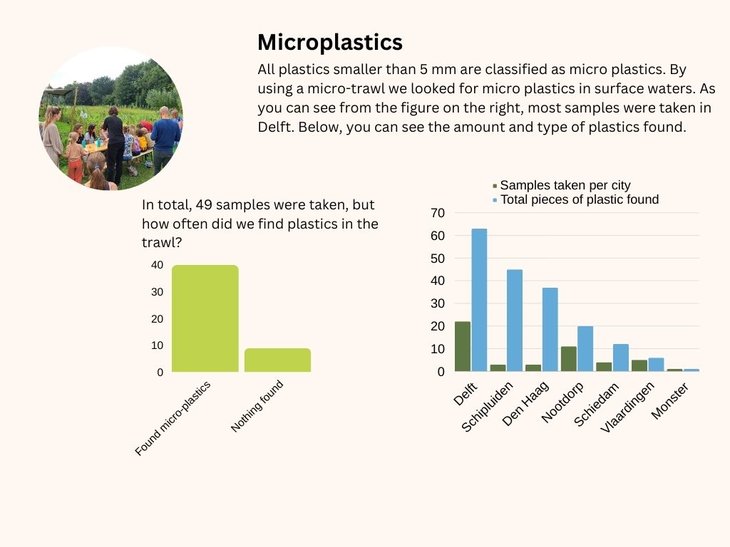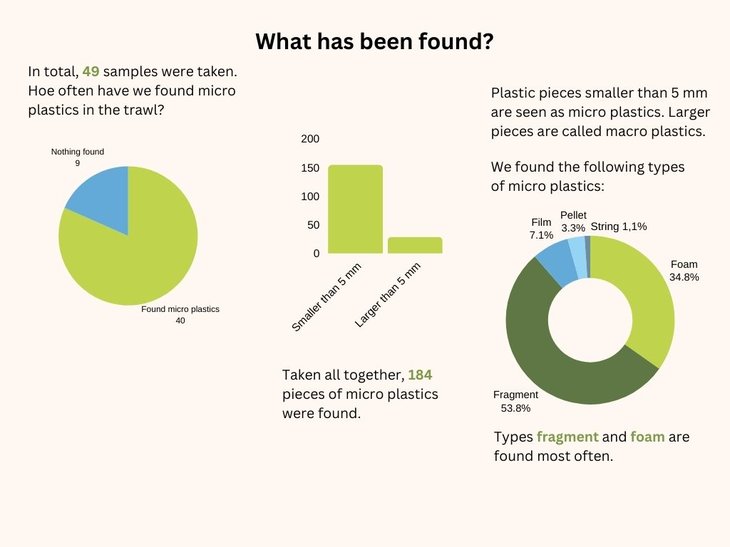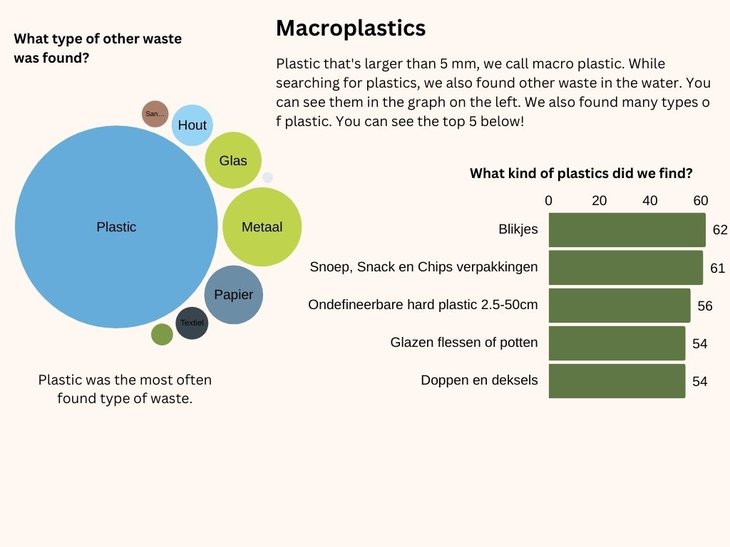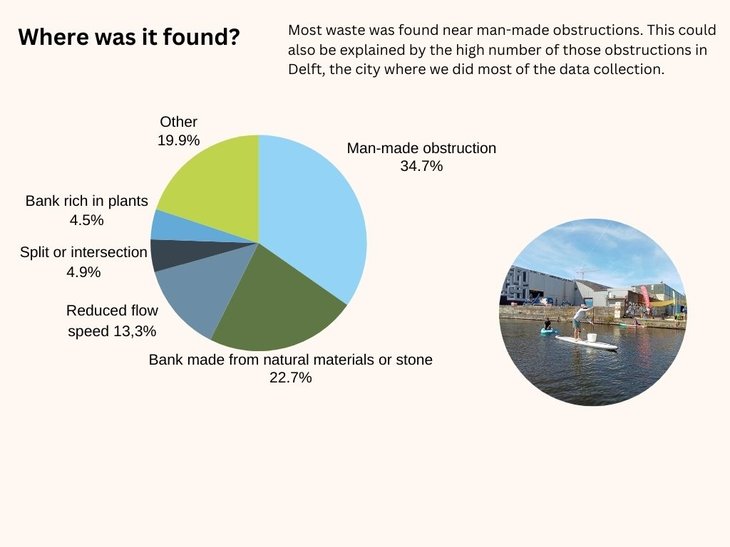Project 9: Spot de Hotspot!
Results are in!
It has been more and more visible in the news in recent years: microplastics. Tiny pieces of plastic found in various products, water, and often in our bodies. In 2023, we conducted research in Delfland to enhance our knowledge of macro and microplastics in Dutch waters. Scroll down quickly for the results!
The project
During 'Spot the Hotspot,' we, along with 507(!) citizen scientists, mapped out the macro and microplastics in the water in Delfland. This helps us understand more about plastic pollution in the region. The data collected are used by organizations such as the Waterboard of Delfland to take necessary actions.
What did we measure?
Spot the Hotspot consists of a 'macro' and a 'micro' component. Macro-plastics (larger than 5 mm) include plastic 'hotspots' in or around the water, places where more plastic accumulates than in other areas. This can happen, for example, in slow-flowing water, around an obstacle in the water, or simply in busy areas where a lot is discarded. For micro-plastics (smaller than 5 mm), small nets were built to be towed behind a submarine or canoe, collecting water samples that were later analyzed.
Results 2023
You can find the full report with all the results here. Alternatively, check out the data maps for macro-plastics and micro-plastics.
Who participates in this project?
The project is organized and led by the WaterLab. Data was collected by over 500 citizen scientist from the Delfland region. The assignment for this project was given by the Hoogheemraadschap van Delfland. We collaborate with various water sports associations, scouting organizations, and nature conservation groups to make this project possible.




